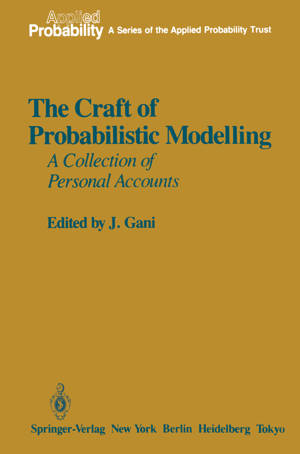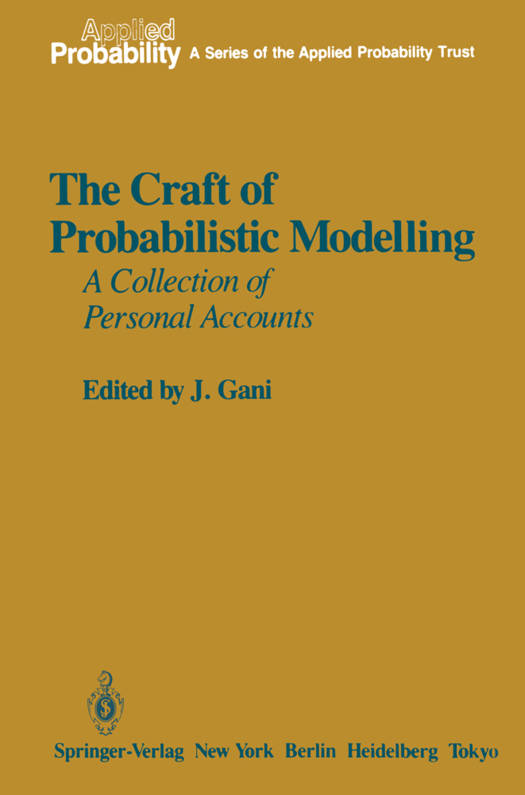
Door een staking bij bpost kan je online bestelling op dit moment iets langer onderweg zijn dan voorzien. Dringend iets nodig? Onze winkels ontvangen jou met open armen!
- Afhalen na 1 uur in een winkel met voorraad
- Gratis thuislevering in België vanaf € 30
- Ruim aanbod met 7 miljoen producten
Door een staking bij bpost kan je online bestelling op dit moment iets langer onderweg zijn dan voorzien. Dringend iets nodig? Onze winkels ontvangen jou met open armen!
- Afhalen na 1 uur in een winkel met voorraad
- Gratis thuislevering in België vanaf € 30
- Ruim aanbod met 7 miljoen producten
Zoeken
The Craft of Probabilistic Modelling
A Collection of Personal Accounts
€ 90,95
+ 181 punten
Omschrijving
This book brings together the personal accounts and reflections of nineteen mathematical model-builders, whose specialty is probabilistic modelling. The reader may well wonder why, apart from personal interest, one should commission and edit such a collection of articles. There are, of course, many reasons, but perhaps the three most relevant are: (i) a philosophicaJ interest in conceptual models; this is an interest shared by everyone who has ever puzzled over the relationship between thought and reality; (ii) a conviction, not unsupported by empirical evidence, that probabilistic modelling has an important contribution to make to scientific research; and finally (iii) a curiosity, historical in its nature, about the complex interplay between personal events and the development of a field of mathematical research, namely applied probability. Let me discuss each of these in turn. Philosophical Abstraction, the formation of concepts, and the construction of conceptual models present us with complex philosophical problems which date back to Democritus, Plato and Aristotle. We have all, at one time or another, wondered just how we think; are our thoughts, concepts and models of reality approxim&tions to the truth, or are they simply functional constructs helping us to master our environment? Nowhere are these problems more apparent than in mathematical model- ling, where idealized concepts and constructions replace the imperfect realities for which they stand.
Specificaties
Betrokkenen
- Uitgeverij:
Inhoud
- Aantal bladzijden:
- 313
- Taal:
- Engels
- Reeks:
- Reeksnummer:
- nr. 1
Eigenschappen
- Productcode (EAN):
- 9781461386339
- Verschijningsdatum:
- 18/10/2011
- Uitvoering:
- Paperback
- Formaat:
- Trade paperback (VS)
- Afmetingen:
- 156 mm x 234 mm
- Gewicht:
- 467 g

Alleen bij Standaard Boekhandel
+ 181 punten op je klantenkaart van Standaard Boekhandel
Beoordelingen
We publiceren alleen reviews die voldoen aan de voorwaarden voor reviews. Bekijk onze voorwaarden voor reviews.










